Filter by
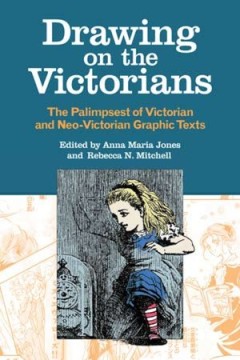
Drawing on the Victorians : The Palimpsest of Victorian and Neo-Victorian Gra…
Late 19th-century Britain experienced an explosion of visual print culture and a simultaneous rise in literacy across social classes. New printing technologies facilitated quick and cheap dissemination of images—illustrated books, periodicals, cartoons, comics, and ephemera—to a mass readership. This Victorian visual turn prefigured the present-day impact of the Internet on how images are p…
- Edition
- -
- ISBN/ISSN
- 9780821422472
- Collation
- -
- Series Title
- -
- Call Number
- 800 DRA
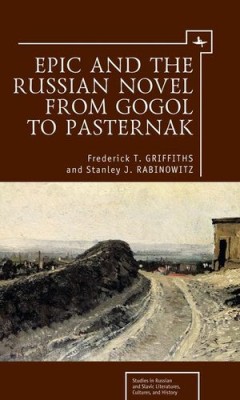
Epic and the Russian Novel from Gogol to Pasternak
"Epic and the Russian Novel from Gogol to Pasternak examines the origin of the nineteen- century Russian novel and challenges the Lukács-Bakhtin theory of epic. By removing the Russian novel from its European context, the authors reveal that it developed as a means of reconnecting the narrative form with its origins in classical and Christian epic in a way that expressed the Russian desire to …
- Edition
- -
- ISBN/ISSN
- 9781618116826
- Collation
- -
- Series Title
- -
- Call Number
- 800 GRI e
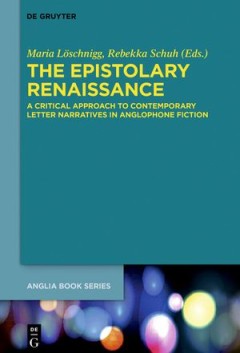
The Epistolary Renaissance : A Critical Approach to Contemporary Letter Narra…
Since the late twentieth century, letters in literature have seen a remarkable renaissance. The prominence of letters in recent fiction is due in part to the rediscovery, by contemporary writers, of letters as an effective tool for rendering aspects of historicity, liminality, marginalization and the expression of subjectivity vis-à-vis an ‘other’; it is also due, however, to the artistica…
- Edition
- -
- ISBN/ISSN
- 9783110582024
- Collation
- -
- Series Title
- Buchreihe der Anglia / Anglia Book Series
- Call Number
- 800 EPI
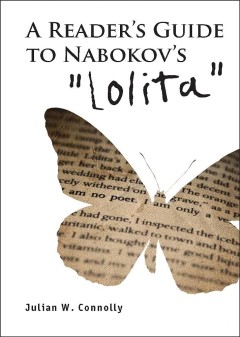
A Reader's Guide to Nabokov's "Lolita"
One of the most fascinating and controversial novels of the twentieth century, Vladimir Nabokov’s Lolita is renowned for its innovative style and notorious for its subject matter and influence on popular culture. The book guides readers through the intricacies of Nabokov’s work and helps them achieve a better understanding of his rich artistic design. The book opens with a detailed chronolo…
- Edition
- -
- ISBN/ISSN
- 9781618117052
- Collation
- -
- Series Title
- -
- Call Number
- 800 CON r
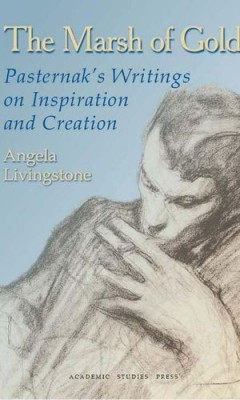
The Marsh of Gold : Pasternak's Writings on Inspiration and Creation
Major statements by the celebrated Russian poet Boris Pasternak (1890-1960) about poetry, inspiration, the creative process, and the significance of artistic/literary creativity in his own life as well as in human life altogether are presented here in direct translation of his own words, and are discussed in the extensive commentaries and introduction. The texts range from 1910 to 1946 and are …
- Edition
- -
- ISBN/ISSN
- 9781618116987
- Collation
- -
- Series Title
- -
- Call Number
- 808.81 LIV m

Poetry and Psychiatry : Essays on Early Twentieth-Century Russian Symbolist C…
In this volume, Professor Ljunggren introduces the Symbolists and their feverish expectations in detail. Theirs was a time when for a brief moment everything seemed possible. Then came the rude awakening, best described in Bely’s powerful prose masterpiece Petersburg, which serves as the connective thread and recurrent point of reference throughout this collection. Written in the early 1910s,…
- Edition
- -
- ISBN/ISSN
- 9781618113610
- Collation
- -
- Series Title
- -
- Call Number
- 800 ROU p
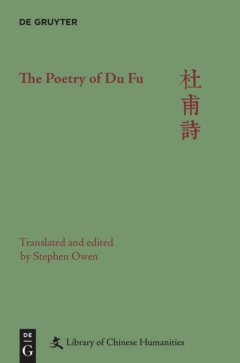
The Poetry of Du Fu
The Complete Poetry of Du Fu presents a complete scholarly translation of Chinese literature alongside the original text in a critical edition. The English translation is more scholarly than vernacular Chinese translations, and it is compelled to address problems that even the best traditional commentaries overlook.The main body of the text is a facing page translation and critical edition of t…
- Edition
- -
- ISBN/ISSN
- 9781501501890
- Collation
- -
- Series Title
- Library of Chinese Humanities
- Call Number
- 800 OWE p

The Poetry of Hanshan (Cold Mountain), Shide, and Fenggan
Due to their popularity with the American counterculture, the poems attributed to Hanshan, Shide and Fenggan have been translated several times in recent decades. However, previous translations have either been broadly popular in nature or have failed to understand fully the colloquial qualities of the originals. This new version provides a complete Chinese/English edition of the poems, aimed a…
- Edition
- -
- ISBN/ISSN
- 9781501501913
- Collation
- -
- Series Title
- -
- Call Number
- 800 ROU p
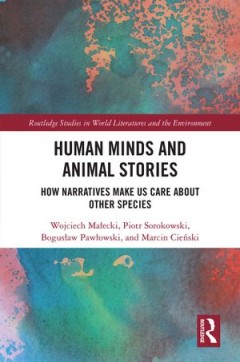
Human Minds and Animal Stories : How Narratives Make Us Care About Other Species
The power of stories to raise our concern for animals has been postulated throughout history by countless scholars, activists, and writers, including such greats as Thomas Hardy and Leo Tolstoy. This is the first book to investigate that power and explain the psychological and cultural mechanisms behind it. It does so by presenting the results of an experimental project that involved thousands …
- Edition
- -
- ISBN/ISSN
- 0429590059
- Collation
- -
- Series Title
- -
- Call Number
- 800 MAL h
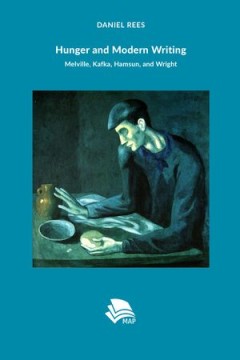
Hunger and Modern Writing : Melville, Kafka, Hamsun, and Wright
"Hunger is a contentious theme in modernist literature, and this study addresses its relevance in the works of four major American and European writers. Taking an in-depth look at works by Melville, Kafka,Hamsun, and Wright, it argues that hunger is deeply involved with concepts of modernity and modern literature. Exploring how it is bound up with the writer’s role in modern society this stud…
- Edition
- -
- ISBN/ISSN
- 9783946198161
- Collation
- -
- Series Title
- -
- Call Number
- 800 REE h
 Computer Science, Information & General Works
Computer Science, Information & General Works  Philosophy & Psychology
Philosophy & Psychology  Religion
Religion  Social Sciences
Social Sciences  Language
Language  Pure Science
Pure Science  Applied Sciences
Applied Sciences  Art & Recreation
Art & Recreation  Literature
Literature  History & Geography
History & Geography